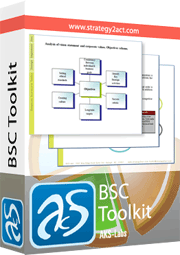Instead of a shift in big data developments for the coming year, expect variations on ideas that garnered interest in 2014.
With so many organizations still trying to get their big data projects up to speed, it's worth looking at trends that will impact this technology space. In an interview with John Lucker, principal and leader of Deloitte's global advanced analytics and modeling market, we got the details on what businesses should expect.
Data ethics
Data ethics, distinct from data privacy for Lucker, will be a trend in 2015. Lucker expects the idea of ethics in collecting and analyzing data to be big for businesses this year. He said consumers are waking up to the ways in which businesses use their data, and they aren't always happy. Using data in underhanded ways could lead to bad publicity. At the same time, President Obama has proposed legislation to strengthen existing requirements. Running afoul of regulations could cost businesses through penalties.
Companies can solve a lot of these problems by assigning someone like a chief data officer to determine how to handle customers' data ethically and then put governance programs in place that ensure policies are followed, Lucker said
"The problem is that in the back rooms of companies there are people who are doing things with the best of intentions and something can be done accidentally that needs to be evaluated," he said. "Companies need to be very rigorous about making sure they're comfortable with what's going on."
Open source
Last year saw tremendous interest in open source tools like Hadoop, Spark and R. But Lucker said he expects open source to be even bigger in 2015.
A word of caution for organizations: Assess the stability of any piece of open source technology before inserting it into key business processes.
When a product enters large-scale production, companies can't be "at the mercy of people sitting around a college dorm room," he said. "They want something that has commercial teeth."
One option he discussed is looking into commercial distributions of open source products. These may be safer bets -- less likely to introduce code changes that significantly alter functionality -- than pure open source implementations. However, the downside to this approach is the cost.
Cognitive computing
Lucker said 2015 may not be the year we see true thinking machines, but he expects vendors to make machine-learning tools and other cognitive computing technology more accessible -- and businesses are taking note.
"It comes down to the fact that there [has] been this maturity of hardware and software that's hitting the mainstream," Lucker said. "This technology has become quite available and affordable."
He admitted that some developers working on cognitive computing are looking more toward artificial intelligence, something that is still years away and of debatable value for businesses. But more targeted cognitive computing projects -- like pairing natural language processing tools with machine-learning algorithms to assess feeds from customer service call lines and direct inquiries appropriately --could have big payoffs.











0 comments:
Post a Comment